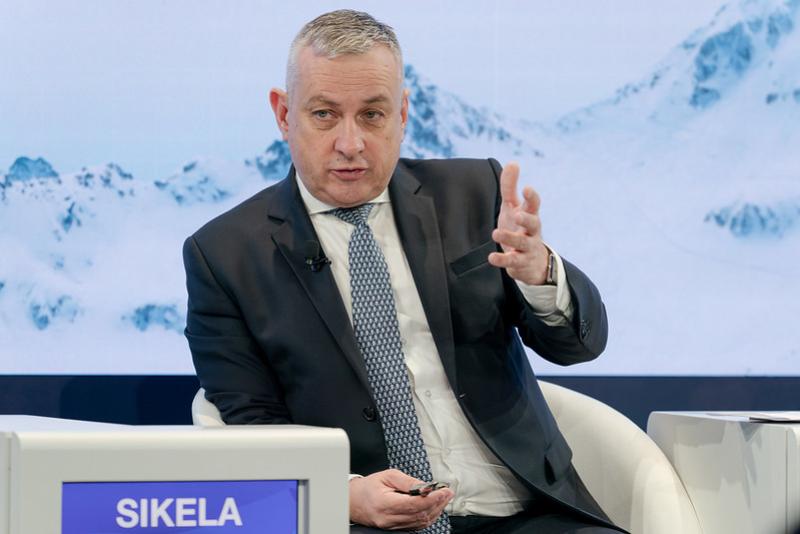Stay always informed
Interested in our articles? Get the latest information and analysis straight to your email. Sign up for our newsletter.

Jozef Síkela, Mayors and Independents (STAN), part of EPP
![Photo of Jozef Síkela and the words: Jozef Síkela Czech Republic Revolving door highlights: 2010 - 2015 | CEO of the Slovak Savings [Slovenská spořitelna] 2015 - 2019 | Board member of Erste Group Bank, Chairman and CEO of Erste Bank in Ukraine 2019 - 2020 | External advisor of Erste Group Bank 2021 - Now | Minister of Industry and Trade Incompatibility Alert! At Erste Group, one of the largest financial services providers in Central and Eastern Europe, he was responsible for corporate and investment ba](/sites/default/files/styles/image_l/public/2024-09/web_JOZEF%20-SIKELA_TWITTER%20copy%202_0.jpg?itok=BILeAmb4)
Czech Minister of Industry and Trade since December 2021, Síkela’s background is in investment/corporate banking, and he only moved through the revolving door into politics quite recently (ie when he was appointed Minister in 2021) (Source).
His 30+ year banking career included being CEO of the Slovak Savings [Slovenská spořitelna] 2010-2015, then being a board member of Erste Group Bank until 2019, then an external advisor to it until end of 2020 (source). As a board member of Erste Group (which is Austrian, and one largest financial services providers in Central and Eastern Europe), he was “responsible for corporate and investment banking, mergers and acquisitions, real estate finance, trade finance, financial markets and macroeconomic analysis. He covered these activities in several European markets and was also responsible for offices in London, New York and Hong Kong” (source).
Síkela is also described has having been “Chairman and CEO of Erste Bank in Ukraine and, thanks to the successful consolidation of the bank, was appointed Chairman and CEO of Slovenská spořitelna [Slovak Savings, largest commercial bank in Slovakia], where he achieved historically record results” (source).
In the year before being appointed to government he was a self-employed “Investor, Independent Advisor”, including financial advisory and Management & Business Consulting (LinkedIn), though notably his profile on the Czech government website actually lists “2021 – present: Self-employed (consultancy), partner of the fund of qualified investors Primefund, aimed at innovation and technology”, raising the question of whether he is still acting as self-employed consultant (Source).
Síkela “made a good name for himself in Brussels negotiating compromises during the energy crisis” (Euractiv), playing a “key role during the Czech presidency, when he gained agreement on a gas price cap to reduce dependency on Russian fossil fuels, after famously saying he’d “convene as many Energy Council meetings as necessary.” (Euronews) Reportedly a total of 12 Energy Council meetings were held during the Czech presidency in the second half of 2022 (source). Síkela presented the Council with two proposals for setting maximum energy prices, either “separating the high market price of gas from the prices of power plants generating electricity from gas; or setting a cap on prices charged by producers from lower-cost plants such as those using renewable sources, nuclear fuel and coal (Reuters). The 180 euros per megawatt hour gas price cap that was eventually agreed Síkela hailed as an “important agreement that will shield citizens from skyrocketing energy prices” (Reuters).
Síkela entered the Czech government as the nominee of the liberal Mayors and Independents party (STAN) (source), currently the third largest party (source). STAN promotes localism/regionalism and the principle of subsidiarity including decentralisation and “reduced bureaucracy”. STAN is pro-European integration and believes in a “state economy driven by the principles of a free market with the social aspect and sanctity of private property in mind”; ‘individual responsibility’ is a key tenet for the party, and ‘good stewardship’ is considered to include “elimination of unnecessary bureaucracy” (Starostové a nezávislí STAN).
The government of Prime Minister Petr Fiala, formed in December 2021, is itself a coalition of centre-right political alliance (SPOLU - comprised of the Civic Democratic Party, KDU-ČSL, and TOP 09) and liberal progressive centrist political alliance Pirates and Mayors (PirSTAN - comprised of Czech Pirate Party and STAN).
The government’s popularity has dropped due to a controversial ‘consolidation package’, aimed at reducing the country’s debt level - ie cuts that continue “to stifle the economy” - as well as some tax increases (breaking a pre-election promise), and declining living standards/failure to reach pre-Covid GDP levels (source). Its steps to reduce Czech dependence on Russian fossil and nuclear fuels have been viewed more positively, with the state taking on a bigger role in the energy sector – though it remains very fossil fuel oriented (source).